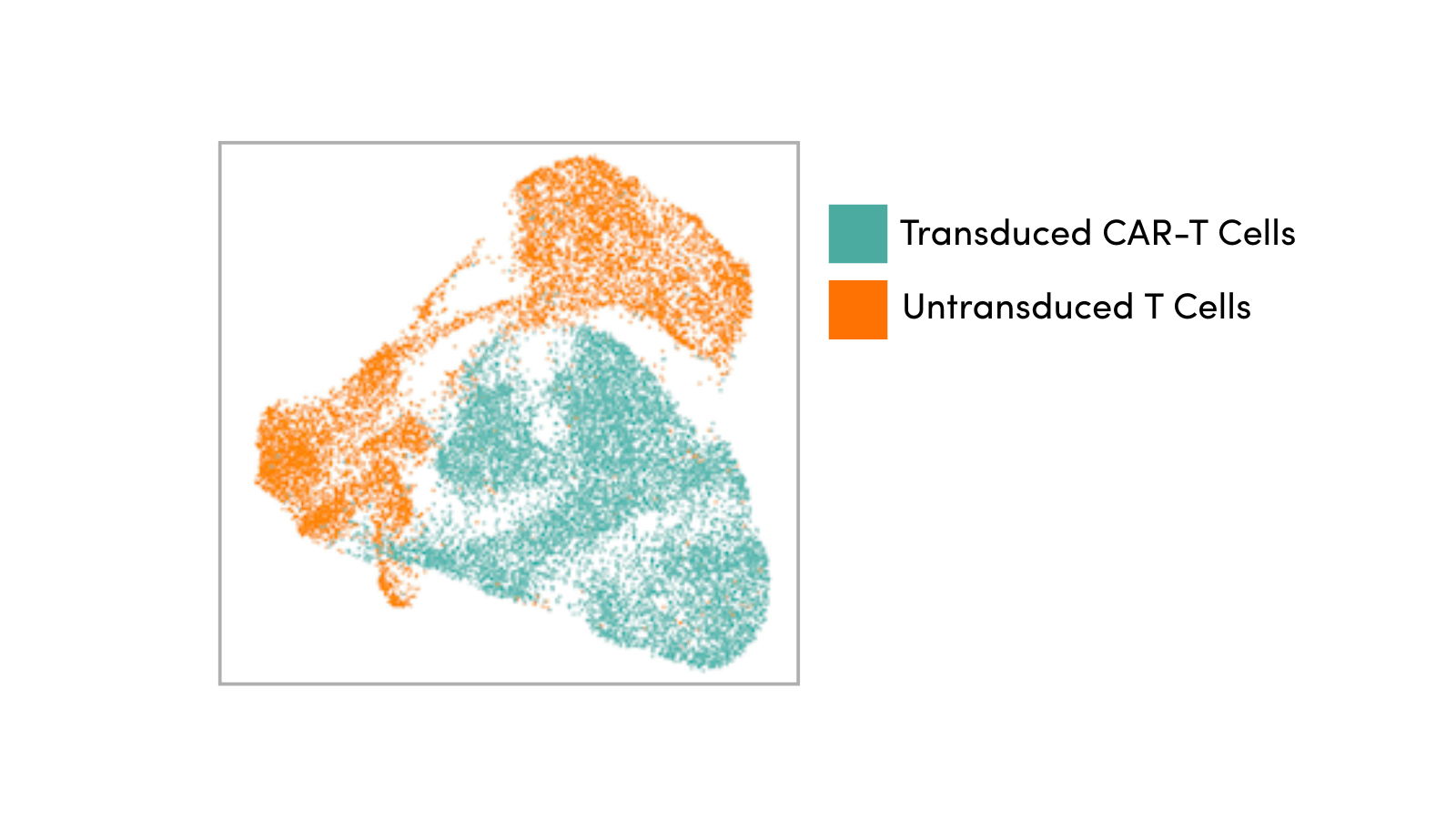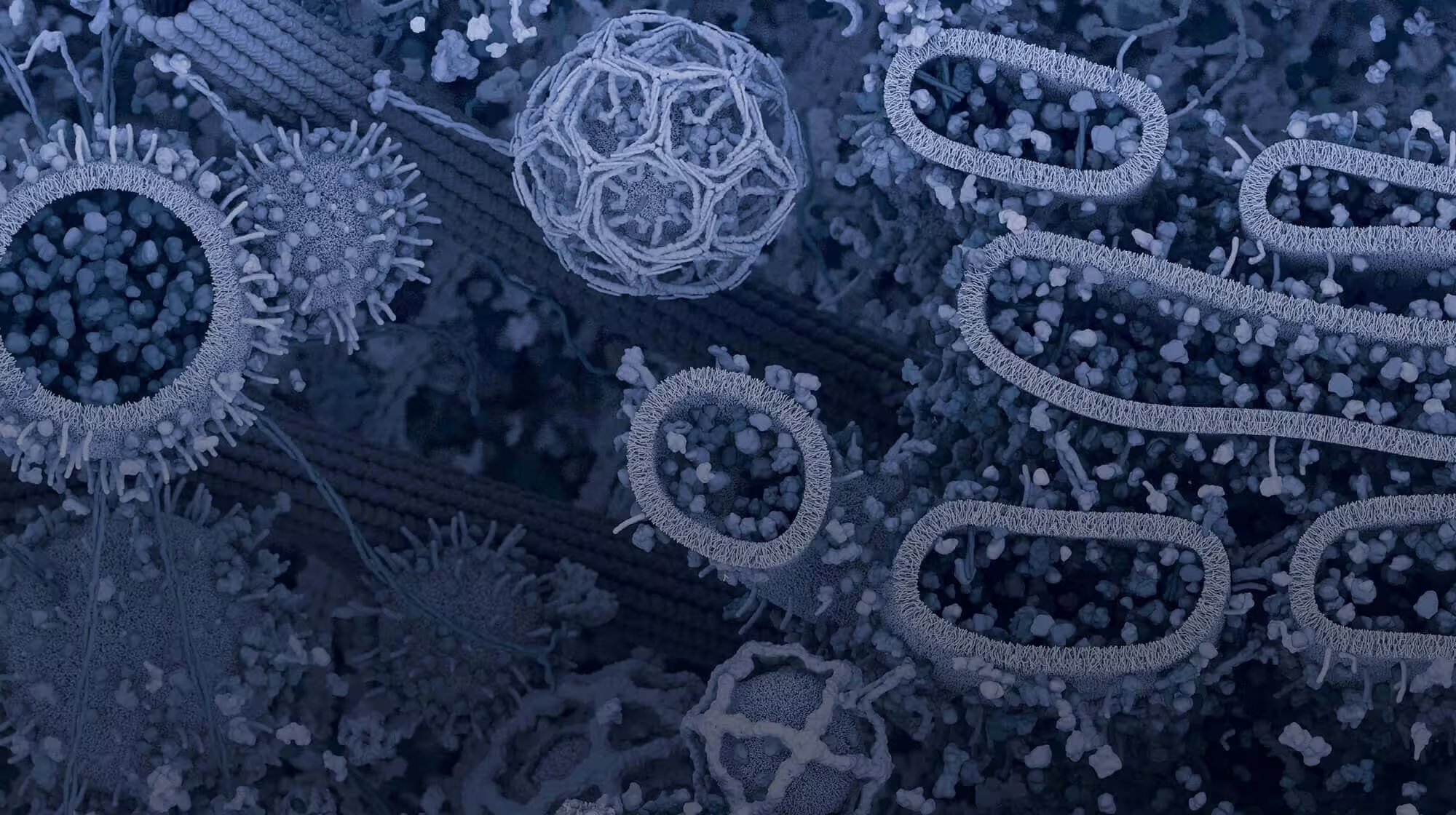Specificity, consistency, and optimized assay conditions are three key elements that help ensure reliable immunofluorescence (IF) staining results each and every time. So, before starting an experiment you should ask yourself the following three questions:
- Is your antibody specific?
- Is your antibody supported by an optimized IF protocol?
- Is your antibody performing consistently?
Let's take them each in turn...
1. Is Your Antibody Specific?
Detection of a specific band in western blot does NOT guarantee that the antibody performs specifically for immunofluorescence as well. All CST antibodies approved for use in IF have undergone a rigorous validation process that includes verification of the correct subcellular localization in target appropriate cell or tissue model systems.
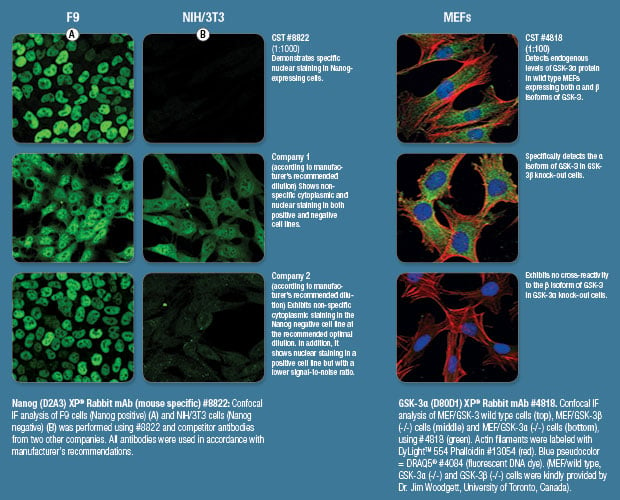
RESULTS: The specificity of CST antibodies is demonstrated by a robust detection of the target of interest in the appropriate subcellular compartment and the absence of staining in cells devoid of this target
2. Is Your Antibody Supported by an Optimized IF Protocol?
Save yourself from spending precious time and reagents on efforts to optimize a protocol that works. At CST, we have determined the fixation, permeabilization, and optimal antibody dilution conditions for you in our IF protocols.
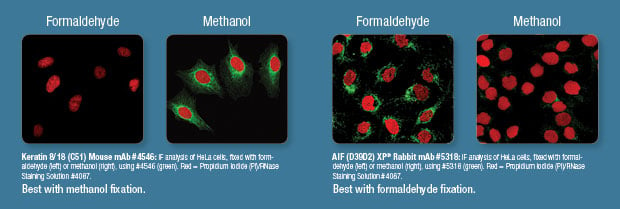
RESULTS: Optimizing fixation and permeabilization reagents can substantially improve your results.
3. Is Your Antibody Performing Consistently?
Ensure reagents are reliable for the life of your project. We test every new antibody lot to ensure its performance is equivalent to that of previous lots.
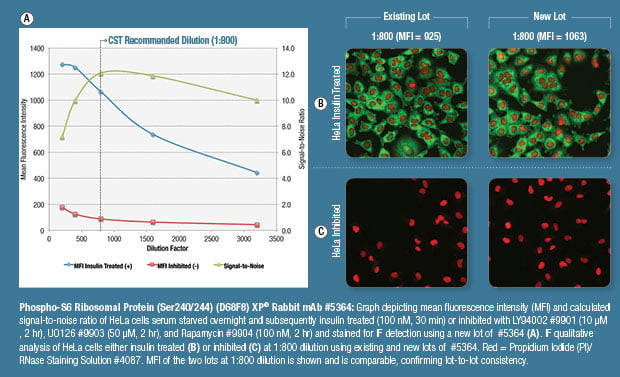
RESULTS: Stringent testing ensures lot-to-lot consistency.
How Did Your Antibody do?
If you answered yes to all three questions, then you should feel pretty secure that your antibody will support your experiments and help you move your research forward. If not, then you might want to look for another antibody option. Whichever antibody you choose, the CST technical team is always here to help you set up or troubleshoot your experiments.
Blog: Successful Immunofluorescence: The Importance of Validation
You can also download the Guide to Successful Immunofluorescence, a resource packed with tips and the 9-step Protocol for a Successful Immunofluorescence Experiment.





